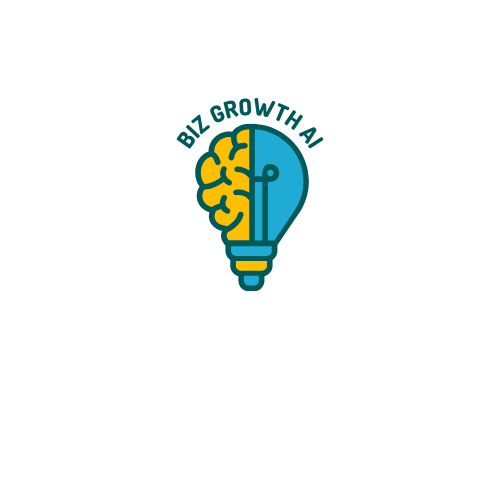
Introduction to Artificial Intelligence in Sales
Artificial Intelligence (AI) has become a cornerstone in the evolution of sales processes. Traditional sales strategies are rapidly being transformed as AI offers innovative ways to personalize customer experiences, predict buying patterns, and automate repetitive tasks. AI in sales doesn't only refer to chatbots or virtual assistants; it extends to sophisticated algorithms that can analyze large data sets, provide actionable insights, and even forecast sales trends with remarkable accuracy. As such, businesses are recognizing AI's potential to streamline operations, enhance efficiency, and ultimately drive revenue growth.
Understanding AI Sales Strategies for Success
In an ever-competitive market, leveraging AI sales strategies for business transformation is not a luxury but a necessity. AI-driven sales approaches encompass the use of advanced analytics, machine learning, and natural language processing to optimize every part of the sales funnel. From lead generation to closing deals, AI tools can identify patterns and surface information that would be impossible for human teams to discern alone. By understanding and implementing these strategies, companies can elevate their sales capabilities and create more personalized experiences for their customers.
The Intersection of AI Technology and Sales Improvement
At the junction where AI meets sales, there is a dynamic shift that elevates the selling process. AI technology catalyzes sales improvement by offering sophisticated solutions such as predictive analytics – forecasting future sales and identifying lucrative opportunities – and prescriptive analytics – recommending actions that can lead to desired outcomes. Moreover, AI enhances customer relationship management (CRM) systems with intelligent automation that nurtures leads and maintains client relationships without the constant attention of a sales rep.
Key Components of Artificial Intelligence Sales Strategies
The essential elements underlying AI sales strategies include data quality, machine learning models, integration with existing tools, and continuous learning. High-quality data feeds AI algorithms, enabling them to generate accurate insights. Machine learning models evolve to provide more precise predictions and efficiency over time, adapting to changing market conditions and consumer behaviors. Seamless integration with current sales infrastructure ensures a smooth operational transition, while continuous learning mechanisms keep the system up-to-date and ahead of the competition.
Real-World Applications: How Companies Are Using AI to Boost Sales
In the real world, companies across industries are using AI to revolutionize their sales strategies. Retail giants leverage AI for inventory forecasting and personalized recommendations, while B2B enterprises utilize AI-enabled platforms to optimize pricing strategies and improve lead qualification. Additionally, SaaS companies harness AI to enhance user experience by offering customized solutions to clients based on usage data.
Maximizing Sales Performance with AI: Techniques and Tools
To maximize sales performance with AI, businesses adopt a variety of techniques and tools. These include AI-based CRM platforms, social listening tools, email personalization software, and predictive sales analytics. Sales teams also use conversational AI for engaging potential clients and guiding them through the sales funnel efficiently. By leveraging these AI-infused techniques and tools, businesses can optimize resource allocation, enhance customer engagement, and skyrocket their sales results.
Success Stories: Businesses That Have Transformed Through AI Sales Strategies
Many businesses have already reaped the benefits of AI sales strategies. For instance, a leading tech company implemented AI to cross-sell and upsell products, resulting in a significant uptick in revenue per customer. Another success story comes from a financial services firm that uses AI to predict customer churn, allowing them to proactively address concerns and retain more clients. These stories exemplify how AI can not only augment sales figures but also transform entire business models.
Overcoming Challenges in Implementing AI into Sales Processes
Integrating AI into existing sales processes isn't devoid of challenges. One primary concern is ensuring data privacy and security. Additionally, businesses may face difficulties in change management and achieving buy-in from sales teams who might view AI as a threat to their jobs. To overcome these barriers, companies need clear communication about the benefits of AI, proper training, and a phased implementation approach that allows users to experience AI benefits gradually.
Future Trends: The Evolving Landscape of AI in Sales
As we look forward, the landscape of AI in sales continues to evolve with emerging technologies like augmented reality (AR) for product demonstrations and blockchain for secure transaction recording. Continuous advancements in AI will likely usher in more autonomous sales processes and smarter analytics tools. The integration of AI with the Internet of Things (IoT) promises seamless and hyper-personalized customer experiences, further blurring the lines between online and offline sales channels.
Conclusion: Integrating AI into Your Sales Strategy for Sustainable Growth
In conclusion, integrating AI into your sales strategy can lead to substantial and sustainable growth. The keys to success include adopting a tailored AI strategy aligned with business goals, investing in employee training, and choosing the right technological partners. By embracing AI, businesses can expect not just short-term performance boosts but also long-term transformation, keeping them competitive in a rapidly changing sales landscape.


